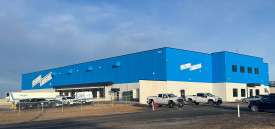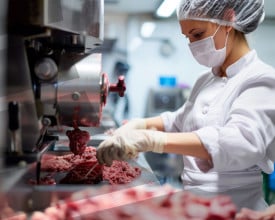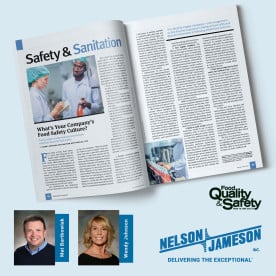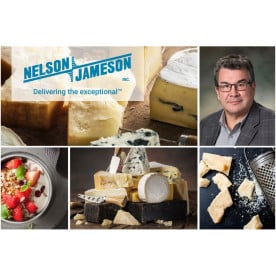Monthly Archives: September 2022
- September 30, 2022
Nelson-Jameson is your premier destination for personalized laboratory furniture, cutting-edge equipment, and comprehensive design services, catering to both domestic and international laboratory facilities. Our collaborative approach enables us to meticulously strategize every aspect of your lab space, offering expert guidance on cabinets, countertops, fume hoods, sinks, balance tables, safety cabinets, and an extensive array of other laboratory essentials. With a commitment to building bespoke, adaptable systems, our focus is on optimizing laboratory spaces for diverse applications. Whether you require state-of-the-art lab furniture, specialized equipment, or a complete lab design overhaul, Nelson-Jameson is your trusted partner in creating efficient and functional laboratory environments. Contact us to get started today!
- September 29, 2022
Safety is a major concern in any workplace, especially when working with machinery and equipment. This Lockout Tagout Buying Guide is your comprehensive resource to understand and implement lockout tagout procedures effectively, ensuring the safety of employees and preventing serious accidents. Lockout Tagout (LOTO) is a critical protocol that prevents the unexpected start-up of machinery during service or maintenance, safeguarding workers from potential hazards. This guide covers various aspects, including the definition and use of lockout and tagout, the importance of hazardous energy control, OSHA requirements, and steps for complete OSHA compliance. Delve into the details of lockout tagout procedure steps, the responsible parties for LOTO, training requirements, and scenarios where lockout must be applied. Learn about different lockout tagout devices, their definitions, and uses, ranging from cable lockouts to valve lockouts, ensuring a thorough understanding of the tools available
- September 29, 2022
In April of this year, OSHA - Region V - WI published a Local Emphasis Program (LEP) established for the purpose of scheduling and conducting inspections within the Food Manufacturing Industry (click here for full details.)
The launch of the LEP allows for greater “outreach, education, training, and enforcement activities.” For many reading this, this specific LEP may not pertain to your facility. However, the rationale behind this special program is something that we can appreciate across the food industry. Reminders like this in our busy, hectic schedules can do a lot “to encourage employers to take steps to identify, reduce, and eliminate hazards associated with exposure to machine hazards during production activities, and off-shift sanitation, service, and maintenance tasks.”
Let’s face it, a food processing
- September 02, 2022
This content highlights the advantages of switching from rigid plastic containers to Whirl-Pak® Bags in the sample collecting and storage process. The benefits include a significant reduction in plastic media waste, greenhouse gas emissions, water usage in manufacturing, overall hands-on time, and storage space. Additional advantages encompass lower shipping and disposal costs, along with puncture-proof, leak-proof closure tabs, guaranteed sterility, and easy identification. The information is backed by a case study conducted in April 2022 by Nasco Sampling LLC. The content also provides a step-by-step guide for implementing the switch, addressing considerations such as raw material and finished product testing, informing purchasing and disposal services, capturing team concerns, and setting up product and testing stations. The Whirl-Pak® Bags meet federal regulations and comply with standards set by FDA, USDA, HACCP, and EPA. For further information or assistance in transitioning





